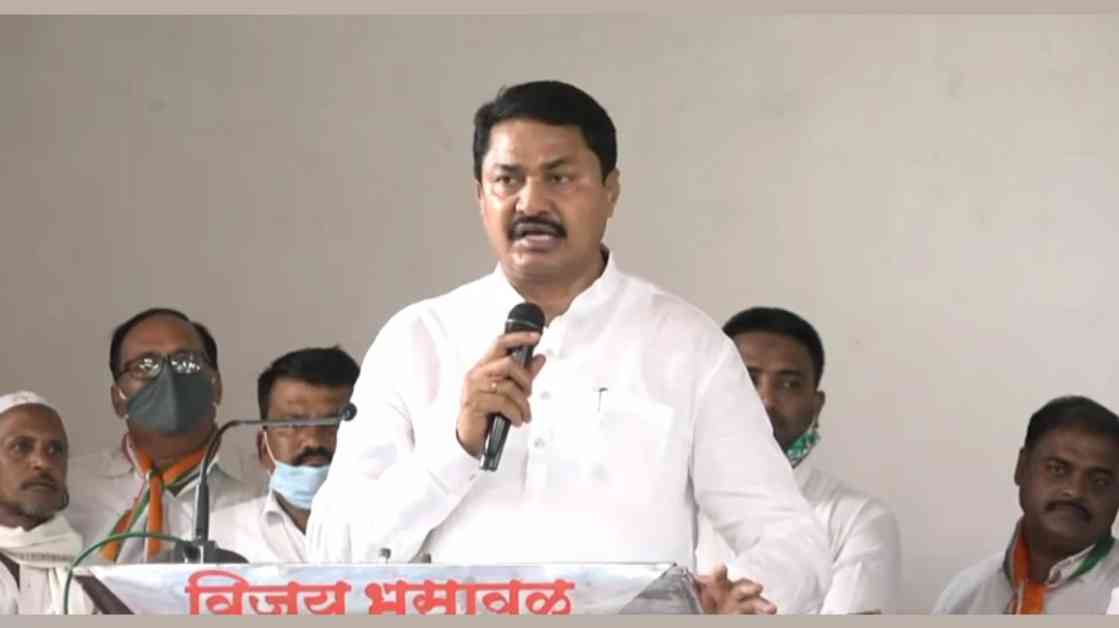Congress President Nana Patole made a bold move on August 30, 2024, ahead of the Maharashtra Assembly elections by announcing the expulsion of two MLAs, Zeeshan Siddique and Jitesh Antapurkar, from the party. The decision, shrouded in mystery without specific public explanations, is widely speculated to be linked to reports of cross-voting by seven Congress MLAs during the elections for 11 Legislative Council seats.
Patole’s announcement came during a press conference in Nagpur, where he faced inquiries about the reasons behind the expulsion of Siddique and Antapurkar. However, Patole chose not to delve into further details, emphasizing that both MLAs were no longer affiliated with the party. Siddique, representing the Bandra (East) constituency in Mumbai, is the son of former Congress leader Baba Siddique, who recently joined the Nationalist Congress Party (NCP) helmed by Deputy Chief Minister Ajit Pawar. Antapurkar, on the other hand, was elected from the Deglur constituency in Nanded district.
In a separate political development, Maharashtra’s Deputy Chief Minister Devendra Fadnavis launched a scathing critique against opposition leaders Sharad Pawar, Nana Patole, and Uddhav Thackeray. Fadnavis, speaking at an event in Mumbai, urged the leaders of the Maha Vikas Aghadi (MVA) coalition to clarify their stance on the Maratha community’s demand for reservation under the Other Backward Classes (OBC) category. He called on the opposition to stop evading the issue and provide clear answers, questioning their commitment to resolving this sensitive and contentious matter.
As the MVA alliance engages in negotiations over assembly seat allocations, the Congress party has set its sights on three crucial constituencies in Pune city—Kasba Peth, Shivajinagar, and Cantonment—out of the six available seats. While the party is still in the process of selecting candidates for these seats, a senior Congress leader revealed that Shiv Sena (UBT) has not objected to the request. However, the final decision hinges on the approval of NCP leader Sharad Pawar. The Congress high command in New Delhi has advised the state leadership to await Pawar’s consent before finalizing decisions on seat-sharing within the alliance.
With the Assembly elections in Maharashtra slated for November 2024, political parties are deeply entrenched in strategic planning and maneuvering. The recent expulsions of MLAs and the heated debates over critical issues such as Maratha reservation underscore the competitive and charged political atmosphere as the election date draws near.
Congress’s Strategic Moves
The expulsion of Zeeshan Siddique and Jitesh Antapurkar from the Congress party has sparked speculation and intrigue within political circles. While the official explanation for their removal remains vague, insiders suggest that the decision may be a repercussion of their alleged involvement in cross-voting during the Legislative Council seat elections.
Siddique, hailing from a political lineage as the son of former Congress leader Baba Siddique, found himself at odds with the party’s leadership due to his family’s recent shift to the NCP. The Siddique family’s alignment with the NCP, led by influential Deputy Chief Minister Ajit Pawar, raised eyebrows and strained relations with the Congress establishment.
Antapurkar, on the other hand, faced expulsion from the party despite representing the Deglur constituency in Nanded district. The lack of transparency surrounding the expulsion has left many questioning the motives behind the party’s decision and the implications it may have on the upcoming Assembly elections.
While Congress President Nana Patole refrained from providing detailed explanations for the expulsions, the move signifies a strategic maneuver by the party to assert its authority and discipline within its ranks. As the political landscape in Maharashtra undergoes rapid shifts and realignments, the Congress party’s actions aim to solidify its position and streamline its leadership ahead of the crucial polls.
Debate Over Maratha Reservation
The issue of Maratha reservation has emerged as a contentious and pressing matter in Maharashtra’s political arena, drawing sharp criticisms and demands for clarity from various quarters. Deputy Chief Minister Devendra Fadnavis’s scathing critique of opposition leaders underscores the urgency and sensitivity of the reservation issue, calling for transparent and decisive action from the MVA coalition.
The demand for Maratha reservation under the OBC category has been a longstanding issue, with the community lobbying for equitable representation and access to government benefits. However, the lack of concrete steps and clear directives from the state’s leadership has fueled frustration and disillusionment among the Maratha community, prompting calls for immediate resolution and redressal of their grievances.
As the Assembly elections loom on the horizon, the stance of political parties and leaders on the Maratha reservation issue will undoubtedly shape voter sentiment and influence electoral outcomes. The MVA coalition’s response to Fadnavis’s challenge to address the reservation matter head-on will be closely watched, as it holds the key to securing the support and trust of the Maratha community in the upcoming polls.
Seat-Sharing Negotiations and Alliance Dynamics
The intensifying discussions over assembly seat allocations within the MVA alliance have brought to the fore the complexities and intricacies of coalition politics in Maharashtra. The Congress party’s request for three pivotal constituencies in Pune city underscores its strategic positioning and quest for electoral dominance in key urban centers.
While the Shiv Sena has not opposed the Congress’s bid for the Pune seats, the final decision rests on the approval of NCP supremo Sharad Pawar, a prominent figure in Maharashtra’s political landscape. The Congress’s maneuvering in the seat-sharing talks reflects its aspirations to consolidate its presence and influence within the alliance, setting the stage for a potentially transformative electoral contest in the state.
As the MVA partners navigate the delicate balance of power and interests in the run-up to the Assembly elections, the dynamics of alliance politics and seat-sharing arrangements will play a pivotal role in shaping the electoral narrative and outcomes. The Congress’s strategic calculus in securing key constituencies and ensuring a cohesive alliance reflects its determination to emerge as a formidable force in Maharashtra’s political landscape.
In conclusion, the unfolding developments in Maharashtra’s political landscape, from the expulsion of MLAs to the debates over critical issues like Maratha reservation and seat-sharing negotiations, underscore the high stakes and intense competition characterizing the run-up to the Assembly elections. As political parties jostle for supremacy and maneuver for electoral advantage, the stage is set for a riveting and closely contested electoral battle that will shape the future trajectory of Maharashtra’s governance and leadership.




















